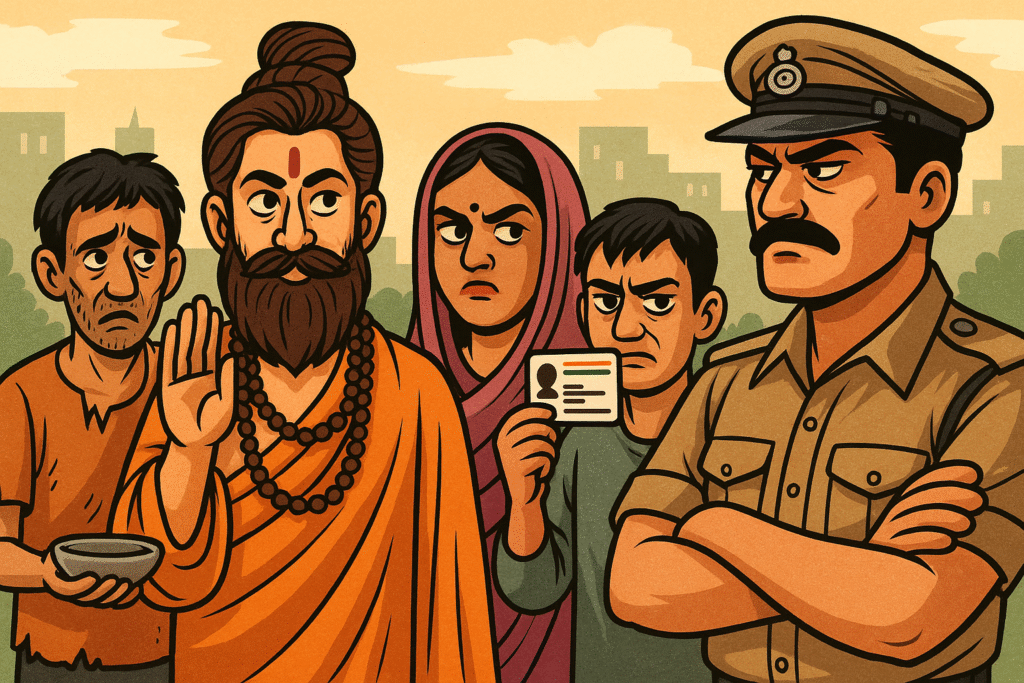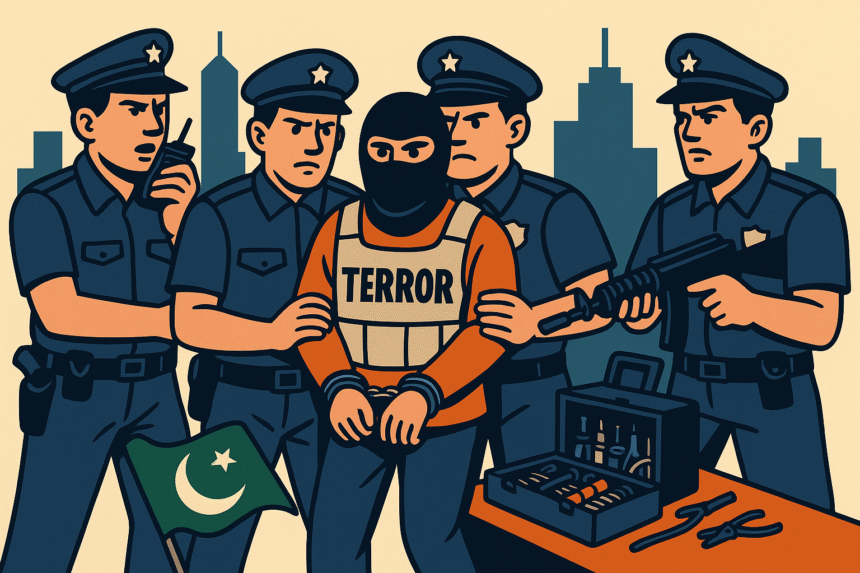Delhi Police Special Cell busted a Pak-linked terror module, arresting 5 terrorists and recovering IED-making material. A major win for security forces.
India has many festivals, but this time, Delhi Police decided to host their own—called “Catch the Terrorists Before They Catch Us.” Spoiler: They won.
In a sensational operation, Delhi Police’s Special Cell uncovered a Pak-linked terror module, arrested five suspects, and seized enough IED material to make a Bollywood villain blush.
The Big Bust
On September 11, 2025, the Delhi Police announced the successful arrest of five terrorists with links to Pakistan. The Special Cell didn’t just stumble upon them—they followed encrypted chats, social media footprints, and suspicious money trails.
The recovered items?
- Country-made pistols
- Live ammunition
- Chemicals like nitric acid, hydrochloric acid, and sulphur powder
- Ball bearings, copper sheets, strip wires, electronic circuits
- Mobile phones, laptops, and cash
Basically, a starter kit for “How to Make an IED 101.”
Who Were They?
The group’s key member, Ashraf Danish, was reportedly operating the module from India while maintaining close contact with Pakistan-based handlers. Investigators found that he used encrypted messaging apps and social media platforms to communicate across the border.
His role? Recruiting vulnerable youth in India, radicalising them, and keeping the terror pipeline alive.
The others were spread across different states. In fact, arrests were made in Delhi, Madhya Pradesh, Hyderabad, and Ranchi—showing just how wide the network was trying to spread.
The Pakistan Connection
Sources confirmed the module had Pakistani handlers, pulling the strings from across the border. While India and Pakistan have a history of trading cricket wins and political jabs, this was a darker exchange—terror and explosives.
Delhi Police revealed that the module was not only planning local strikes but also spreading communal hatred online. Multiple online groups managed by the accused were allegedly promoting division and disturbing harmony.
(For a deeper dive into how terror groups use digital platforms to radicalise youth, you can check detailed analysis by the United Nations Office on Counter-Terrorism).
The Timeline of the Crackdown
- First Wave: Two suspects arrested earlier in the probe.
- Second Wave: Three more suspects nabbed recently, bringing the total to five.
- Joint Operation: Delhi Police Special Cell, Jharkhand ATS, and Ranchi Police worked together, even arresting two suspected ISIS operatives along the way.
This was not just a Delhi story; it was a multi-state operation, showing coordination at its finest.
Why This Matters
Terror modules don’t operate in isolation. They thrive on local recruits, foreign handlers, and digital networks. By busting this group, Delhi Police didn’t just stop one attack—they disrupted a chain of potential future plots.
It’s the equivalent of cutting the Wi-Fi before your cousin can forward 500 fake WhatsApp messages. Effective, immediate, and widely appreciated.
The Internet’s Take
While this is a serious national security issue, netizens, as usual, found ways to lighten the mood.
- Some joked: “Delhi Police unlocked the real dark web—WhatsApp family groups.”
- Others posted memes of Bollywood villains getting outclassed by real cops.
- A few even called it “India’s most unwanted WhatsApp group admin arrest.”
Humor aside, there’s a shared sense of relief that the operation was successful before disaster struck.
The Global Angle
India isn’t alone in facing radicalisation challenges. Countries worldwide are grappling with encrypted apps, social media propaganda, and cross-border terror funding.
The case also highlights a growing concern: cyber-terrorism. Terror outfits are no longer confined to caves and hideouts; they’re on Instagram, Telegram, and maybe even lurking on your favourite meme pages.
This is why agencies worldwide stress on international cooperation. (NATO’s counter-terrorism framework offers insights into how global efforts align).
If you’re planning terror through WhatsApp, just remember—Delhi Police probably reads “last seen” better than you do.
What’s Next?
Officials are continuing their investigation. The suspects are being interrogated, digital trails are being verified, and more arrests could follow. The aim? Completely dismantle the module before it mutates into another threat.
As citizens, the biggest lesson is vigilance. Suspicious activities, online radicalisation attempts, or shady neighbourhood movements—report them. After all, national security is a collective effort.
What do you think is the biggest challenge in fighting modern terror—online radicalisation, foreign funding, or local recruitment? Drop your thoughts below 👇.
And don’t forget—share this with friends. Because awareness is just as powerful as action.
Related Post Suggestion
“Illegal Bangladeshis: From Fake Babas to Fake Aadhaar”
In a world where terror modules try to go viral, Delhi Police just proved they can still hit “delete” faster than anyone else.













